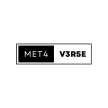Indian Students Coming To Canada
Settle In Canada Today

As an Indian international student, the transition to living and studying in Canada can be both exciting and challenging. From adjusting to a new culture and lifestyle to navigating the education system, there are many obstacles to overcome. However, with the right mindset and preparation, settling in Canada can be a smooth and rewarding experience.
One of the first things to consider when moving to Canada is the culture shock. Canada is a multicultural country, but the customs and values may be quite different from what you are used to in India. For example, the concept of personal space and the way people interact in public may be different. It is important to be open-minded and adaptable, and to remember that these differences are what make Canada such a unique and diverse country.
Another important aspect to consider is finding a sense of community. Joining clubs and organizations on campus, or getting involved in local events and festivals, can help you meet people with similar interests and make new friends. This can also be a great way to learn more about Canadian culture and customs. Additionally, India has a relatively large diaspora in Canada, so it's also possible to find Indian communities or organizations in some of the larger cities such as Toronto, Vancouver, Montreal, etc.
Click HERE for more resources to settle in Canada as an International Student
When it comes to academics, it's important to familiarize yourself with the education system in Canada. In general, the education system in Canada is highly respected and well-regarded globally. The universities and colleges in Canada are known for their research-oriented approach and emphasis on critical thinking and problem-solving skills. However, the grading system and course structure may be different from what you are used to in India.
Firstly, it's important to understand that the education system in Canada is divided into two main categories: universities and colleges. Universities offer undergraduate and graduate degrees, while colleges typically offer diploma and certificate programs. Universities tend to have a broader range of programs and a more research-oriented approach, while colleges tend to have a more vocational focus and are geared towards providing students with specific skills and knowledge for a particular field.
When it comes to the grading system, it's important to note that the scale is different from what you may be used to in India. In Canada, the grading scale typically ranges from 0-100, with 50-60% being considered a passing grade. Additionally, many universities and colleges use a letter grading system, with A being the highest and F being the lowest. It's important to understand the grading scale and system in place at your institution and to speak with your academic advisor if you have any questions or concerns.
Another important aspect to consider is the course structure. In India, the academic calendar is typically divided into two semesters, with a winter and a summer semester. However, in Canada, the academic calendar is divided into three terms: fall, winter, and spring. Additionally, the course structure may be different, with a greater emphasis on self-directed learning and independent research. It's important to understand the course structure and expectations at your institution and to seek support if you have any questions or concerns.
Click HERE for more resources to settle in Canada as an International Student
In terms of the curriculum, it's important to note that the content and focus of courses may be different from what you are used to in India. Canadian universities and colleges place a strong emphasis on critical thinking and problem-solving skills, and the curriculum is designed to encourage students to think independently and creatively. Additionally, many universities and colleges in Canada also have a strong focus on research and innovation, which can provide students with opportunities to engage in cutting-edge research and contribute to the advancement of their field.
In addition to the academic aspect, it's important to be aware that the living and studying in Canada can be more expensive than what you are used to in India. The cost of tuition, housing, and living expenses can be quite high, and it's important to plan accordingly and budget accordingly. Many universities and colleges offer financial aid and scholarships for international students, so it's important to research and apply for these options.
One of the most important things to remember is that settling in Canada is a process and it will take time. It can be easy to get caught up in feeling homesick or overwhelmed, but it's important to remind yourself that these are normal feelings and that it will get easier as you adjust to your new surroundings. It's also important to stay in touch with friends and family back home and to take time for self-care.
Living and studying in Canada as an Indian international student can be a life-changing experience. With the right mindset, preparation, and support, you can successfully navigate the challenges and make the most of the opportunities that Canada has to offer. Remember to take advantage of the resources available to you, such as the international student office at your school, and don't be afraid to ask for help when you need it.
About the Creator
Aakash Sachdeva
Welcome to my storytelling platform on Vocal, where I share stories to help international students settle and grow in Canada.






Comments
There are no comments for this story
Be the first to respond and start the conversation.